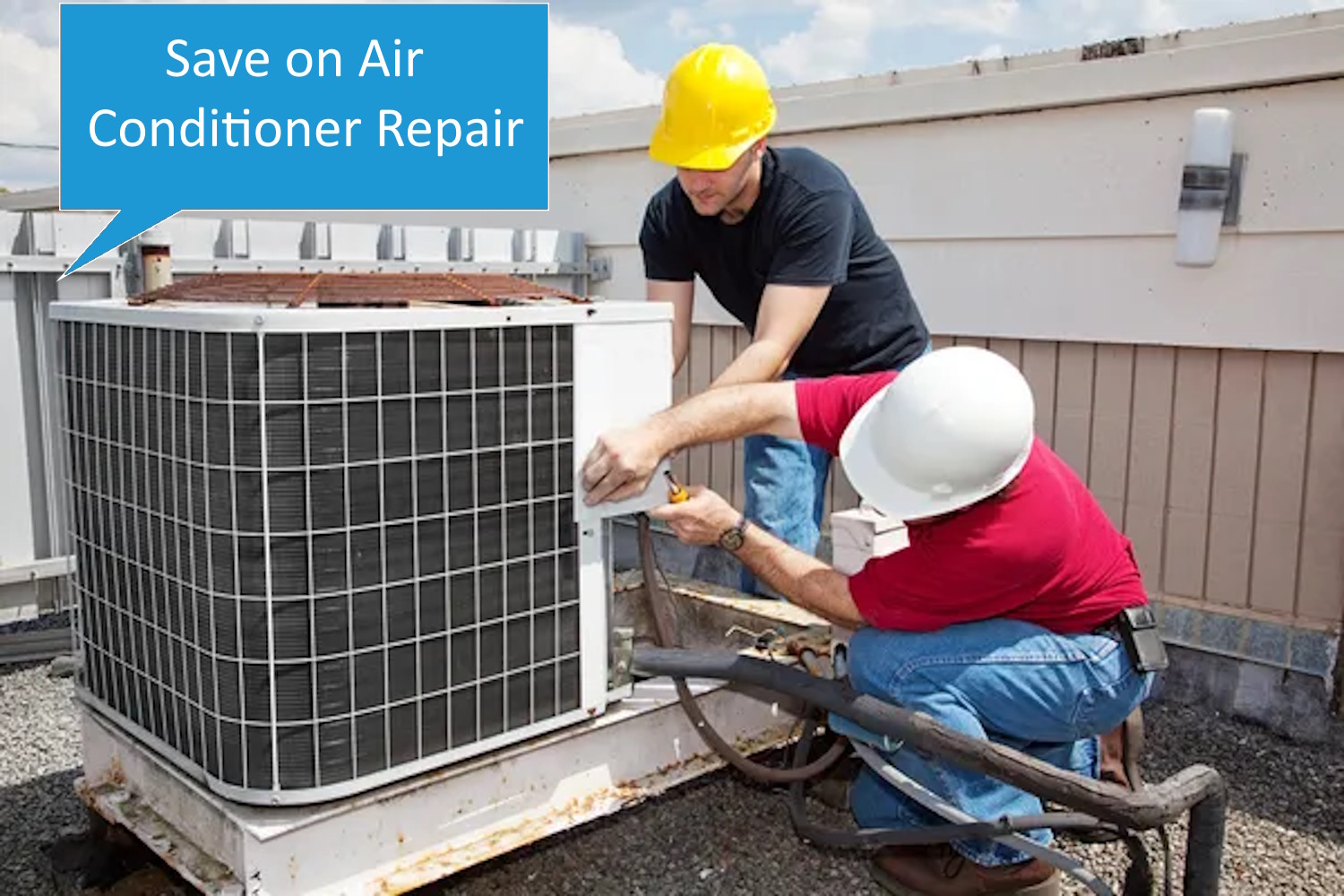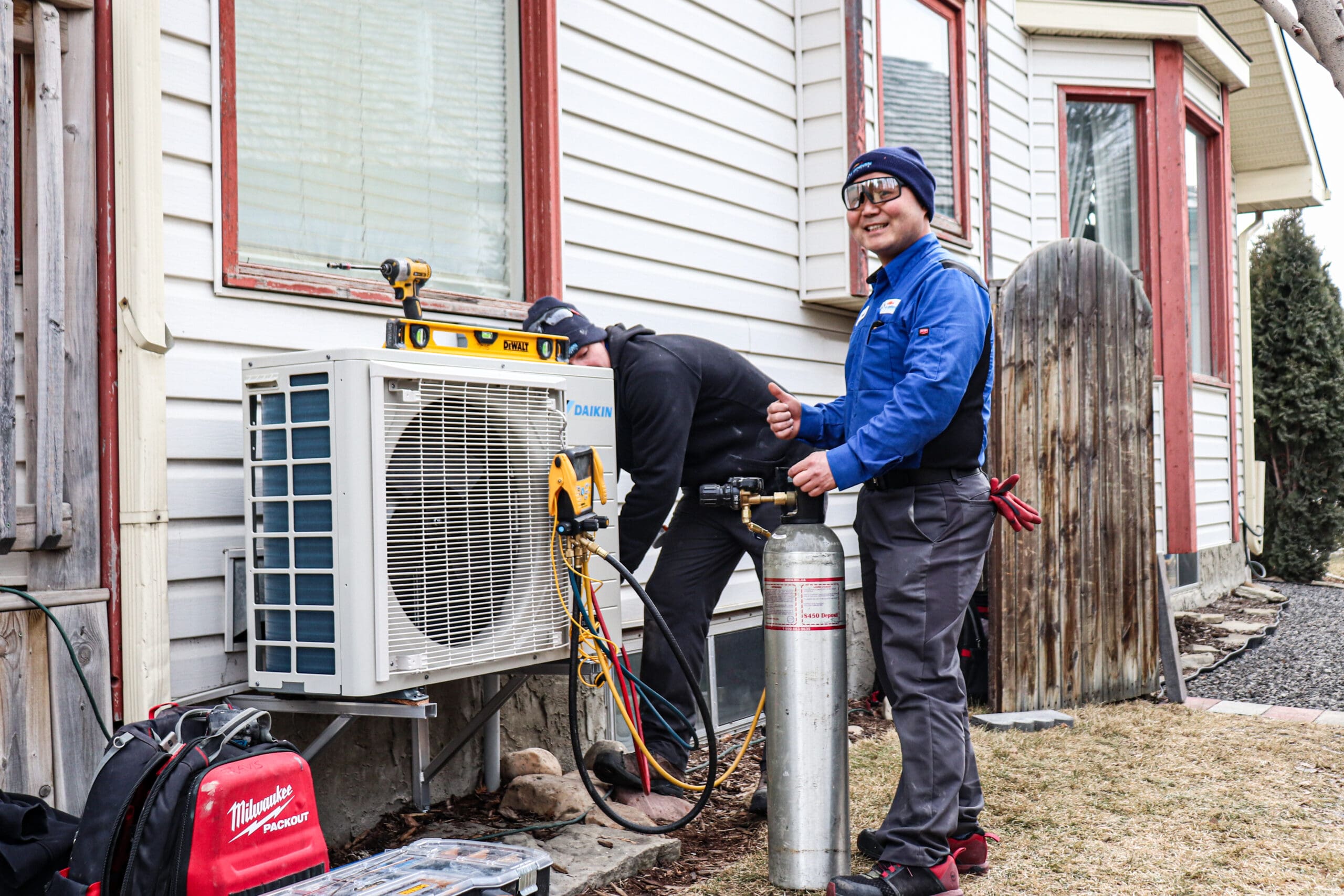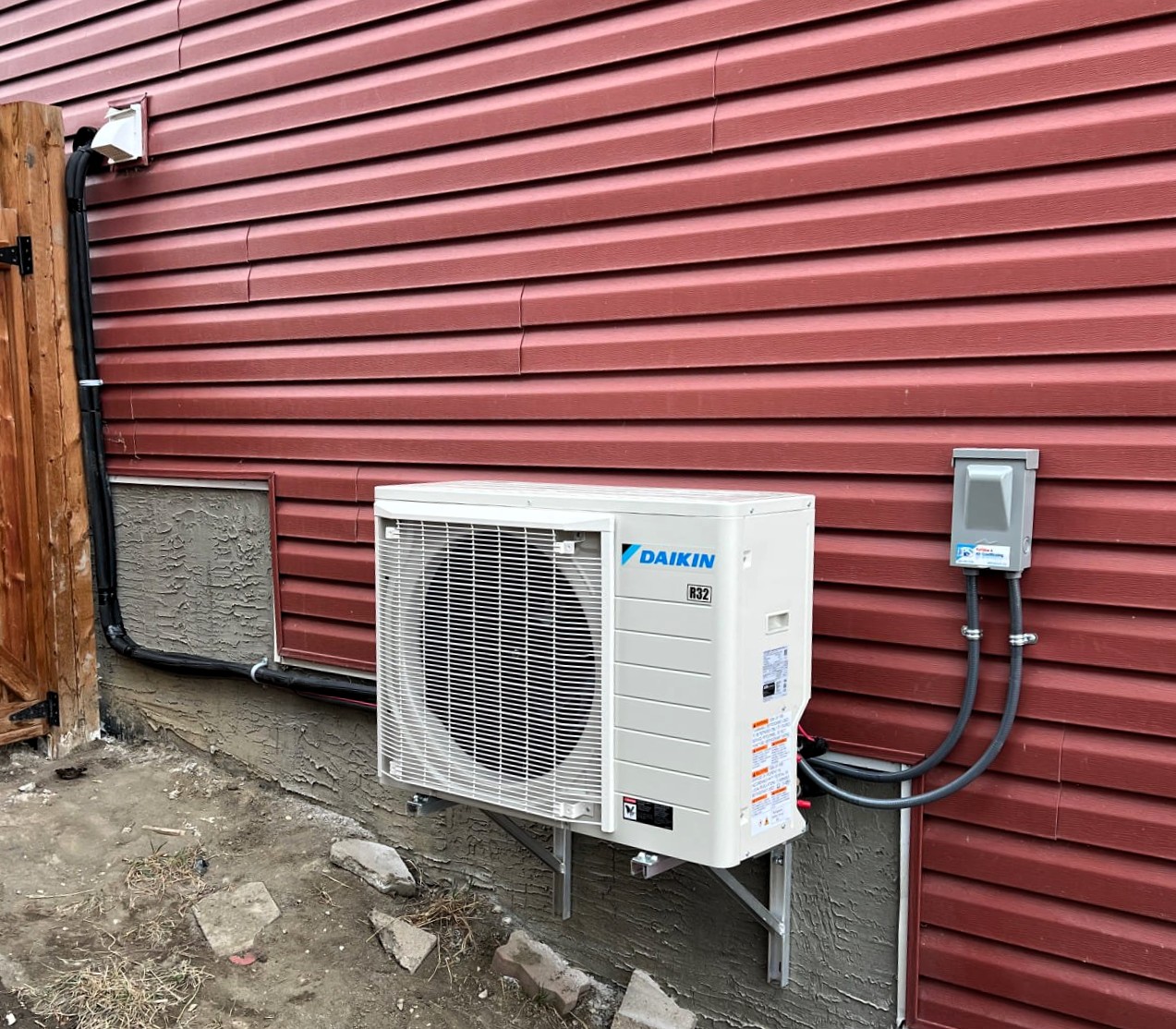When the summer heat starts bearing down on Calgary, Airdrie, Cochrane, Chestermere, and other nearby…

Save on Air Conditioner Repair: Expert Tips & Prices
The summer heat can be brutal, and a malfunctioning air conditioner (AC) can turn your home into an uncomfortable sauna. While AC repair is essential for restoring cool comfort, the cost can be a concern. But fear not! This comprehensive guide equips you with expert tips and price insights to save money on your AC repair in 2024.
Understanding Air Conditioner Repair Costs: A Deeper Dive
Air conditioner repair costs vary depending on several factors, and understanding these factors can empower you to make informed decisions:
- Repair Complexity: Simple fixes like cleaning a clogged drain line are less expensive than replacing a faulty compressor. Here’s a breakdown of some common repairs and their complexity levels:
- Basic Repairs (Low Complexity):
- Cleaning clogged air filters or drain lines
- Replacing thermostat batteries
- Tightening loose electrical connections
- Moderate Repairs (Medium Complexity):
- Repairing refrigerant leaks
- Replacing a malfunctioning thermostat
- Cleaning and lubricating blower motor
- Major Repairs (High Complexity):
- Replacing a faulty compressor
- Replacing evaporator or condenser coils
- Repairing electrical control boards
- Basic Repairs (Low Complexity):
- Parts Cost: Replacement parts can range in price significantly. Here’s a general idea:
- Low-cost parts: Air filters, capacitors, thermostats
- Moderate-cost parts: Refrigerant lines, drain pans, blower motors
- High-cost parts: Compressors, evaporator coils, condenser coils
- Labor Rates: Technicians typically charge hourly rates, with regional variations. Factors like experience and company overhead can also influence labor costs.
- Warranty Coverage: If your AC unit is under warranty, repairs may be covered partially or even entirely. Refer to your warranty documentation for details.
Here’s a breakdown of typical AC repair costs (note: these are estimates and actual prices may differ):
- Basic repairs (cleaning, tune-up): $100 – $300
- Moderate repairs (thermostat replacement, refrigerant leak repair): $300 – $1,000
- Major repairs (compressor replacement, coil replacement): $1,000 – $3,300+
Expert Tips to Save on Air Conditioner Repair: Go Beyond the Basics
Having a grasp of cost factors is a good start. Now, let’s delve deeper into strategies to minimize your AC repair bill:
- Regular Maintenance is Key: Don’t wait for a breakdown! Schedule annual checkups by a qualified HVAC technician. You can even get a Free HVAC quotes from local HVAC companies to compare prices. These checkups can identify and address minor issues before they escalate into costly repairs.
- Embrace DIY Troubleshooting (When Safe): For minor issues, try basic troubleshooting steps like:
- Checking air filters and replacing them regularly (typically monthly)
- Looking for debris around the outdoor unit and clearing it for proper airflow, which also contributes to better indoor air quality
- Verifying thermostat settings and ensuring they’re programmed efficiently
- Get Multiple Estimates and Be Proactive: Don’t settle for the first quote you receive. Compare pricing from several licensed and insured HVAC technicians. Be upfront about your budget and inquire about potential discounts for bundled services (e.g., maintenance and repair combined).
- The Art of Negotiation: While some repairs have fixed costs for parts, negotiate labor rates whenever possible. Be polite but firm and highlight any research you’ve done on average pricing in your area.
- Consider Repair vs. Replacement: A Cost-Benefit Analysis: In some situations, replacing an old, inefficient AC unit may be more cost-effective in the long run compared to repeated repairs. Here are some factors to consider:
- Age of your AC unit: Generally, AC units have a lifespan of 10-15 years. If your unit is nearing the end of its lifespan and experiencing frequent repairs, replacement might be a better investment.
- Efficiency ratings: Newer AC units boast higher efficiency ratings, translating to lower energy bills over time.
- Repair severity: If your AC requires major repairs like compressor replacement, the cost might be comparable to installing a new, more efficient unit.
Extending Your Air Conditioner’s Lifespan: Proactive Maintenance Strategies
By taking proactive measures, you can prevent costly repairs and extend the life of your AC:
- Change air filters regularly: Dirty filters restrict airflow, reducing efficiency and increasing strain on the system. Refer to your AC unit’s manual for recommended filter change frequency (typically monthly). Some high-efficiency filters may only need changing every 3 months but consult your manual for specific recommendations.
- Keep the outdoor unit clean: Remove debris like leaves, twigs, grass clippings, and anything else that might obstruct airflow around the condenser unit. Use a garden hose with a gentle spray to clear away dust and dirt. Avoid using a pressure washer, as the strong force can damage the delicate fins of the condenser coil.
- Schedule professional maintenance annually: A qualified HVAC technician can perform a thorough inspection of your AC unit, identifying potential problems early on. This preventative AC maintenance plan can save you money in the long run by preventing minor issues from escalating into major repairs.
- Trim surrounding foliage: Keep bushes and shrubs at least two feet away from the outdoor unit to ensure proper airflow. Overgrown vegetation can restrict airflow and reduce efficiency.
- Keep the area around the unit well-ventilated: Avoid placing furniture, storage containers, or grills too close to the outdoor unit. Maintain adequate clearance for optimal air circulation.
- Mind your thermostat settings: While it’s tempting to crank the AC down to extreme lows during hot weather, avoid drastic temperature changes. Setting your thermostat to a comfortable but moderate temperature (around 78°F) is more energy-efficient and less stressful on your AC system.
- Invest in a programmable thermostat: Programmable thermostats allow you to schedule temperature adjustments throughout the day. This can help you save energy and reduce wear and tear on your AC unit by avoiding unnecessary cooling cycles.
- Consider smart home technology: Smart thermostats offer even greater control and automation capabilities. You can remotely adjust temperatures, monitor energy usage, and receive alerts for potential problems.
- Turn off the AC when not in use: If you’re leaving the house for an extended period, turn off your AC to prevent unnecessary operation. Consider using ceiling fans or opening windows for natural ventilation when appropriate.
By following these proactive maintenance strategies, you can extend the lifespan of your AC unit, reduce the risk of costly repairs, and enjoy cool comfort for years to come.
Conclusion
Keeping your cool doesn’t have to break the bank. By understanding AC repair costs, implementing these money-saving tips, and prioritizing preventative maintenance, you can ensure your AC system runs smoothly and efficiently throughout the summer season. Remember, early detection and proactive care are key to avoiding costly emergencies. Don’t hesitate to seek professional help for complex repairs and enjoy the peace of mind that comes with a well-maintained air conditioning system.



